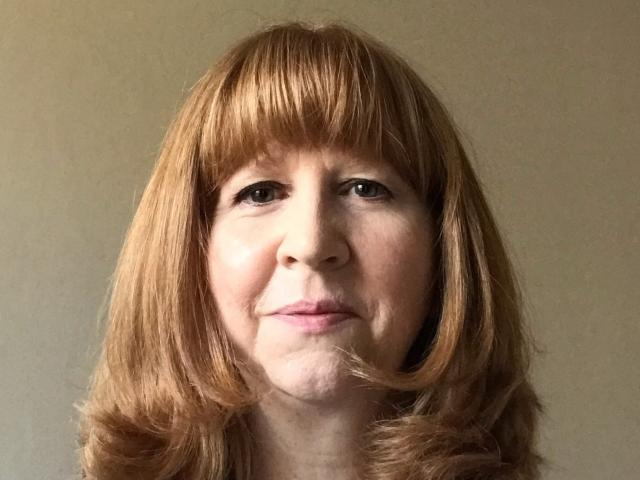
From nursing to research: How Victoria Shepherd became one of the top research leaders in Wales
24 July
Dr Victoria Shepherd is a Senior Research Fellow at Cardiff University's Centre for Trials Research, where she leads research aimed at improving the inclusivity in clinical trials, particularly for adults who lack capacity to consent. Currently funded by the Health and Care Research Wales Faculty, she is developing and evaluating ways to help these groups participate in research ethically and effectively.
From critical care to research
Dr Shepherd’s path to research was far from linear. Originally a nurse working in critical care at the University Hospital of Wales, her journey began on the medical wards. She said:
"At that point in my career I did not have much interest in research.
“But I was questioning how we provide treatment to people who are not able to make their own decisions.”
This curiosity prompted her to pursue a master's degree in medical law and ethics at Swansea University. That is when she discovered a passion for research, which she describes as an "accidental" yet transformative experience.
Discovering the gap
In 2013, Dr Shepherd joined the Centre for Trials Research at Cardiff University, an organisation funded by Health and Care Research Wales. There, she found herself supporting a care home study which highlighted the significant challenges of including people unable to consent for themselves in research. Seeing this major gap in existing research, Dr Shepherd decided to focus her efforts here.
The first fellowship
Dr Shepherd's first major step into the research world was her successful application for a Doctoral Research Fellowship, funded by Health and Care Research Wales through a National Institute for Health and Care Research (NIHR) scheme. This fellowship, which spanned from 2016 to 2019, allowed her to fully dedicate herself to research for the first time. She started exploring the challenges of including individuals who lack the capacity to consent in research and said:
"When I spoke to family members who give consent on behalf of someone else, they found it very difficult to know whether it’s right to include someone in research when they cannot communicate their decision.
“That’s why we developed the decision support aid."
Decision support tools, also known as decision aids, can help people to make decisions that are more informed and consistent with their own values. The 12 page colour booklet that Dr Shepherd and her team created helps family members decide about taking part in a study that best reflects the values of the person they represent, which reduces the burden families feel when involved in decision-making.
This pioneering work laid the foundation for her future research and contributed to her academic development.
Mentorship and support
Victoria emphasised the importance of mentorship and community support in her development as a researcher.
I've hugely benefited from mentorship and support both within what's now the Faculty and also from senior research leaders in Health and Care Research Wales.
“From raising awareness about fellowship schemes to helping to shape my application, providing methodological advice and most importantly providing me with the confidence that I could lead my own area of research.
“Their help was crucial in navigating the competitive and rigorous process of securing fellowships and advancing my research career.”
These mentors and their support helped Victoria kickstart her research career, she added:
“I now provide advice and mentorship to others looking to develop their own paths in research as I know how much I have and still do benefit from their invaluable support.”
The second fellowship
Building on the success of her doctoral fellowship, Dr Shepherd secured an Advanced Fellowship in 2021, again funded by Health and Care Research Wales. This advanced fellowship has enabled her to further develop her research with the CONSULT study
“I’m testing to see whether the decision aid really helps family members and under what circumstances.”
Community
Victoria also appreciates the unique sense of community Health and Care Research Wales Faculty creates, she said:
"Being a small country, you have that sense of community and looking for opportunities to come together to benefit people within Wales and beyond. The fellowship, Wales’ ethos and community culture come together.
“And the essence of fellowships is that sense of being a group, a common group, a cohort.
“It’s about working together and drawing on each other's support."
Why research matters
For Dr Shepherd, research is not just a career; it is a means to address questions and improve the quality of life for vulnerable populations. She believes that research is essential for developing new ways of understanding and enhancing patient care, particularly for those who can’t advocate for themselves.
"Research matters to me because it allows us to create new knowledge and improve people's lives.
“If you're curious about the world and how we can make it better, research is key.”
Next steps
Dr Shepherd's efforts have not only led to practical tools and frameworks but also inspired further studies and training programmes across the UK. Her Churchill Fellowship, which enabled her to travel to Canada and Australia to learn more and bring global perspectives back to Wales.
Visit Health and Care Research Wales Faculty website to find funding opportunities and awards that can help you start your research journey.